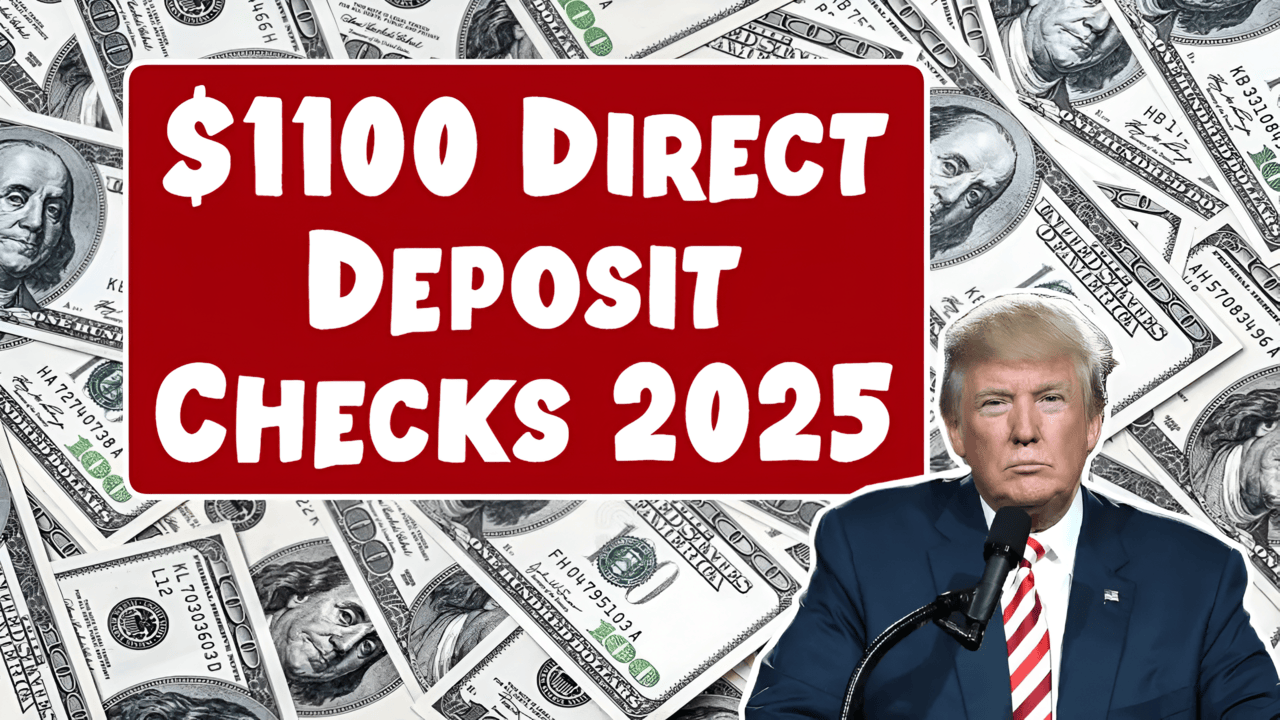$1100 Direct Deposit Checks 2025: Know Eligibility & Payment Dates
The U.S. government has announced a new round of financial support for eligible citizens in 2025—$1100 direct deposit checks. This payment is part of ongoing efforts to help Americans cope with rising living costs. If you qualify, the money will be sent straight to your bank account, making the process quick and hassle-free.
But who exactly is eligible for this payment? When can you expect to receive it? Let’s break it all down in simple terms.
Who Qualifies for the $1100 Direct Deposit Check?
Not everyone will get this payment. The government has set specific eligibility rules to ensure the funds go to those who need them most. Here’s what you need to qualify:
1. Income Limits
Your income plays a big role in determining eligibility. Generally, individuals earning less than 75,000peryear∗∗(or∗∗150,000 for married couples filing jointly) will receive the full $1100. If you earn slightly more, you may still get a reduced amount.
2. Tax Filing Status
You must have filed your 2024 tax return to be considered. The IRS uses this information to confirm your income and determine if you qualify.
3. Citizenship & Residency
Only U.S. citizens, permanent residents, and qualifying resident aliens are eligible. You must also have a valid Social Security Number (SSN).
4. Dependent Status
If someone else claims you as a dependent on their tax return, you won’t be eligible for this payment.
5. Banking Information on File
Since this is a direct deposit payment, the IRS needs your current bank details. If they don’t have them, you might receive a paper check or debit card, which could take longer.
When Will You Get the $1100 Payment?
The IRS has not yet released exact dates, but based on past stimulus payments, here’s what we expect:
-
First Batch: Late January to February 2025 (for those with direct deposit set up).
-
Second Batch: March to April 2025 (for paper checks and debit cards).
-
Delayed Payments: If there are issues with your tax return or banking details, your payment might arrive later.
The best way to track your payment is through the IRS “Where’s My Payment?” tool, which will be updated once distributions begin.
What If You Don’t Receive the Payment?
If you believe you qualify but don’t get your $1100 by the expected dates, here’s what you can do:
-
Check the IRS Website – Use the payment tracker tool for updates.
-
Verify Your Tax Return – Ensure your 2024 taxes were filed correctly.
-
Update Your Bank Details – If your account has changed, notify the IRS.
-
Contact the IRS – If all else fails, call the IRS helpline for assistance.
How to Use the $1100 Wisely
While an extra $1100 can be helpful, it’s important to use it smartly. Here are some suggestions:
-
Pay Off Debt – Reduce credit card balances or loans.
-
Build Emergency Savings – Put some money aside for unexpected expenses.
-
Cover Essential Bills – Use it for rent, groceries, or utilities.
-
Invest in Necessities – Home repairs, medical expenses, or education costs.
Avoid unnecessary spending—this money is meant to provide financial relief, not for luxury purchases.
Beware of Scams
Unfortunately, scammers often take advantage of government payments. Remember:
✅ The IRS will never call, text, or email you asking for bank details.
✅ Official updates come only from IRS.gov or verified government sources.
✅ Never share personal information with unknown callers.
If someone asks for your SSN or banking info to “process” your payment, it’s a scam—report it immediately.
Final Thoughts
The $1100 direct deposit checks in 2025 will provide much-needed support for millions of Americans. If you meet the eligibility criteria, keep an eye on IRS updates to know exactly when your payment will arrive.
Make sure your tax filings are up to date, and if you encounter any issues, act quickly to resolve them. Most importantly, use this money wisely to improve your financial stability.
Stay informed, avoid scams, and prepare for this helpful boost to your budget in 2025!
Have questions? Check the official IRS website or consult a tax professional for personalized advice.




